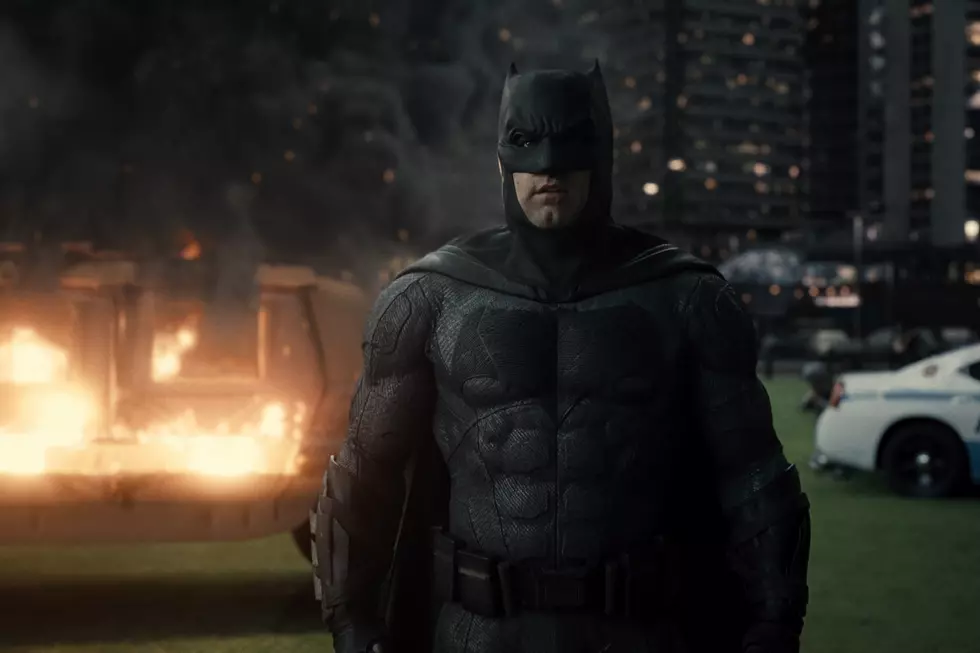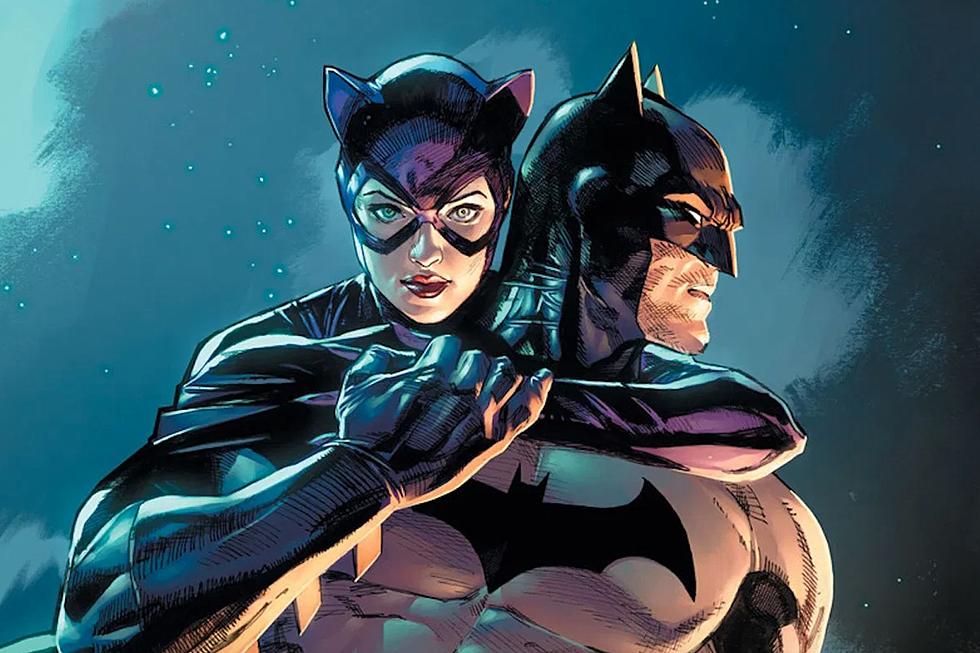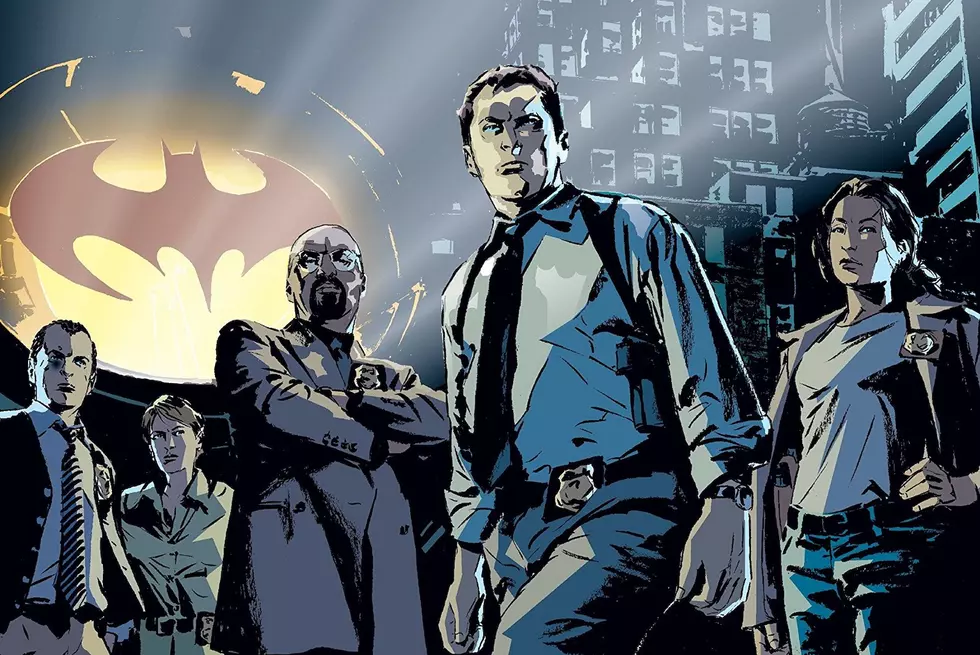
Should Batman Kill the Joker? Perspectives from Five Famous Philosophers

Tauriq Moosa, an ethicist writing for the site Big Think, recently posted a thought piece titled "Why Batman Should Kill the Joker." In it, he argues that, contrary to Batman's famed "no killing" policy, Batman actually has a moral obligation to rid the world of the Joker once and for all. It's certainly not the first time someone has proposed that Batman break his big rule for his nemesis, and folks have responded to Moosa's assertion from both sides of the ethical fence. With all this talk of killing, I've decided instead to bring a few people back from the dead, examining what five moral and political philosophers might have to say about Batman's ethical dilemma.Moosa's post argues that, by not killing the Joker, Batman is, to some extent, responsible for the Joker's crimes. Batman is aware that the Joker will inevitably escape captivity, and yet refuses to permanently incapacitate him:
It appears that Batman's nonlethal attitude to The Joker is partially responsible for the continual death and suffering of many innocents. This is so because we all know that Arkham Asylum - the revolving door of Gotham's criminals - can't hold The Joker. And, as I said, debilitating him doesn't work and there is no cure for his chaos and insanity.
The argument has attracted more than a few responses, including a counterargument on why Batman shouldn't kill the Joker (because then he'd have to add many more names to his hitlist) and a claim that Batman avoids killing not for moral reasons, but to maintain smooth relations with his allies (plus another post countering that claim).
But not every philosophical system views the execution of a mass murderer as morally imperative -- or even morally permissible. I've chosen five philosophers with distinct views on the world, and examined how the question might play out under their philosophical views.
 Immanuel Kant: One issue with Moosa's piece is that he is coming from a distinctly non-Kantian worldview. He says that, in general, he doesn't support the death penalty, but in the face of an unstoppable killing force like the Joker, he believes there's a moral imperative to make an exception. Meanwhile, Bruce Wayne probably had pictures of Immanuel Kant taped inside his high school locker. Kantian ethics hinges on the idea of categorical imperatives, meaning that there are universal ethical standards in the world that cannot be violated. Batman's code of conduct isn't an arbitrary set of rules that can be broken or bent in service to a higher power -- it is the higher power. It's what makes Batman, in his own mentality, the anti-criminal. Batman has resolved that killing is wrong, and so not killing is an inviolable imperative.
Immanuel Kant: One issue with Moosa's piece is that he is coming from a distinctly non-Kantian worldview. He says that, in general, he doesn't support the death penalty, but in the face of an unstoppable killing force like the Joker, he believes there's a moral imperative to make an exception. Meanwhile, Bruce Wayne probably had pictures of Immanuel Kant taped inside his high school locker. Kantian ethics hinges on the idea of categorical imperatives, meaning that there are universal ethical standards in the world that cannot be violated. Batman's code of conduct isn't an arbitrary set of rules that can be broken or bent in service to a higher power -- it is the higher power. It's what makes Batman, in his own mentality, the anti-criminal. Batman has resolved that killing is wrong, and so not killing is an inviolable imperative.
However, that doesn't mean that Batman is a model Kantian. After all, Kant asserted that actions should be performed from duty rather than passion. That sense of duty may keep Batman from killing the Joker, but wasn't the whole notion of Batman born from passion? After all, it was the sorrow of that little boy watching his parents die in an alley that spawned a lifelong obsession with crime. And Batman engages in all sorts of behavior that wouldn't exactly come Kant-approved, especially his constant deception. Kant was against lying and deception in all forms, so he would be categorically opposed to secret identities, undercover work and dangling criminals off fire escapes when you have no intention of letting them splatter on the sidewalk.
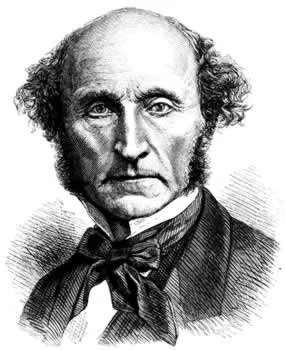 John Stuart Mill: Mill was the first philosopher to articulate the harm principle, holding that individuals should be at liberty to do whatever they please, so long as they do not harm other individuals. (It should be noted that harm is different from offense; no matter how upsetting it is, Mill's form of liberalism would permit the Joker to walk around in clown makeup delivering manic monologues.) Mill also subscribed to the utilitarian greatest-happiness principle, believing that one should always act in a way that moves toward the greatest aggregate happiness.
John Stuart Mill: Mill was the first philosopher to articulate the harm principle, holding that individuals should be at liberty to do whatever they please, so long as they do not harm other individuals. (It should be noted that harm is different from offense; no matter how upsetting it is, Mill's form of liberalism would permit the Joker to walk around in clown makeup delivering manic monologues.) Mill also subscribed to the utilitarian greatest-happiness principle, believing that one should always act in a way that moves toward the greatest aggregate happiness.
Obviously, the Joker, with his constant infliction of physical and psychic pain, violates both the harm principle and the greatest-happiness principle. But would Mill obligate Batman to kill the Joker? In 1868, Mill gave a speech on capital punishment in the House of Commons. He said that he in the most atrocious cases, and where the criminal shows no remorse (and isn't the Joker the platonic ideal of such a criminal?), the murderer has shown himself to be unworthy of life and it is appropriate "solemnly to blot him out from the fellowship of mankind and from the catalogue of the living." On top of that, Mill, who prioritized intellectual suffering over physical suffering, believed that capital punishment was actually less cruel than other forms of punishment that would be appropriate for such an egregious crime. So not only would Batman be moving toward the physical and psychic happiness of innumerable Gothamites by snuffing out the Joker, he might, according to Mill, be granting the Joker a more humane end than rotting in Arkham.
Thomas Hobbes: According to Hobbes, the Joker should die, but not at Batman's hands. Under Hobbesian political theory, Gotham City should be a tightly regulated commonwealth. An all-powerful sovereign would serve as judge and jury, and he would be certain to execute the Joker as a signal to anyone else who might feel anarchical tendencies. Of course, Batman wouldn't be safe from the sovereign's judgment, either. Hobbes believed that all citizens should enter into a social contract with the state, where they agree to be ruled absolutely by the government. Dressing as a bat and engaging in vigilantism is a serious breech of the social contract.
On the other hand, perhaps when young Bruce Wayne saw his parents brutally murdered, he could have styled himself as the sovereign of Gotham City, and transformed the city into a Leviathan-style absolutist state instead of becoming a masked crimefighter. In that case, the sovereign Bruce Wayne would have had an obligation to kill the Joker to preserve the social order, even where Batman feels it is his obligation not to do so.
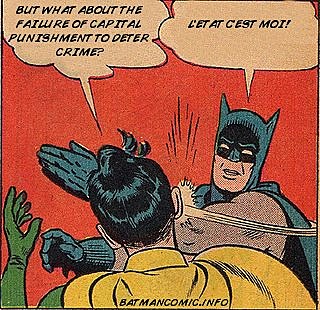
John Rawls: Getting into more modern philosophy, Rawls' theory of justice revolves around setting up social rules as if we all started under a veil of ignorance. As we form societal rules, we have to imagine that none of us knows what our social position will be in the world, what our intelligence or natural talents will be, how prone we will be to violence or psychological illness. In other words, none of us knows which of us will be Batman, which of us will be the Joker, and which of us is going to be an innocent bystander. Rawls asserted that, by conducting this thought experiment, we can reason ourselves to create a social system that ensures a smoothly running society that favors and supports the least well off in that society. So would the rational, veiled person require the only man able to catch the Joker to kill him? As a potential victim, I would say yes.
But Rawls' ideal set of social rules might also preclude Batman from existing in the first place. Rawls believed that a truly fair society, one where rules were formed through the veil of ignorance, would ensure the regulation of natural and economic advantages. Rawls believed that all people have an equal claim on society's goods, so any inequality in social or economic advantages must only be compensate for other disadvantages. The brilliant and physically fit Bruce Wayne would not have the financial advantages that helped him become Batman in Rawls' ideal society.
 Friedrich Nietzsche: Nietzsche might regard the Joker as a natural response to the "death of God," the loss of the Abrahamic system of morality that formerly guided European societies. In the absence of a coherent sense of Truth, some exceptional individuals will confront the nihilistic void left behind and struggle to devise a new meaning of life. In the absence of an Übermensch, a superman who creates his own values and therefore recreates meaning in life, the Joker is following his own value set, which celebrates his own innate sense of comedy and crime.
Friedrich Nietzsche: Nietzsche might regard the Joker as a natural response to the "death of God," the loss of the Abrahamic system of morality that formerly guided European societies. In the absence of a coherent sense of Truth, some exceptional individuals will confront the nihilistic void left behind and struggle to devise a new meaning of life. In the absence of an Übermensch, a superman who creates his own values and therefore recreates meaning in life, the Joker is following his own value set, which celebrates his own innate sense of comedy and crime.
The Joker is not ashamed of his individualist refusal to submit to conventional morality, rather rubbing it in the faces of anyone who will listen (even if he has to tie them down to make them listen). Just as the lamb might disapprove of the way a bird of prey kills, we may disapprove of the Joker's murder and mayhem. But Nietzsche wants us to reevaluate that sense of disapproval. After all, do we only disapprove of the Joker's actions because we are ourselves unable to murder and gleefully engage in crime? Without any sort of absolute truth to condemn the Joker's actions, Nietzsche's philosophy would not automatically mark him for death.
Batman is also struggling against the nihilistic void, and is willing to exist outside the herd morality by taking justice into his own hands. However, although Batman is often associated with the Übermensch because he honed his body and his mind through his own incredibly strong will (which is often linked to the Nietzschean concepts of self-overcoming and self-creation), Batman's refusal to kill the Joker is one symptom of his failure to fulfill the promise of the Nietzschean Übermensch.
Batman does not function on his own inner morality, taking each case and judging it according to his own will. Instead, he follows an exterior and conventional morality that divides actions into "good" and "evil" (a morality Nietzsche terms a "slave morality"), and he places killing among the "evil" actions. Rather than challenging conventional moral values by creating his own value system, Batman has enslaved himself to the notion that killing is, without question, evil. Whereas Nietzsche advocated the examination of truth from all perspectives, Batman is dogmatic and morally inflexible.
Nietzsche would rather see Bruce Wayne free his will from outside influence just as he freed his body from the typical constraints of human physicality. Once he has done that and created his own system, he should take up the mantle of Übermensch and lead humanity into the next moral age. And if the Joker's existence conflicts with the assertion of Bruce Wayne's will, he should simply kill the Joker.
More From ComicsAlliance

